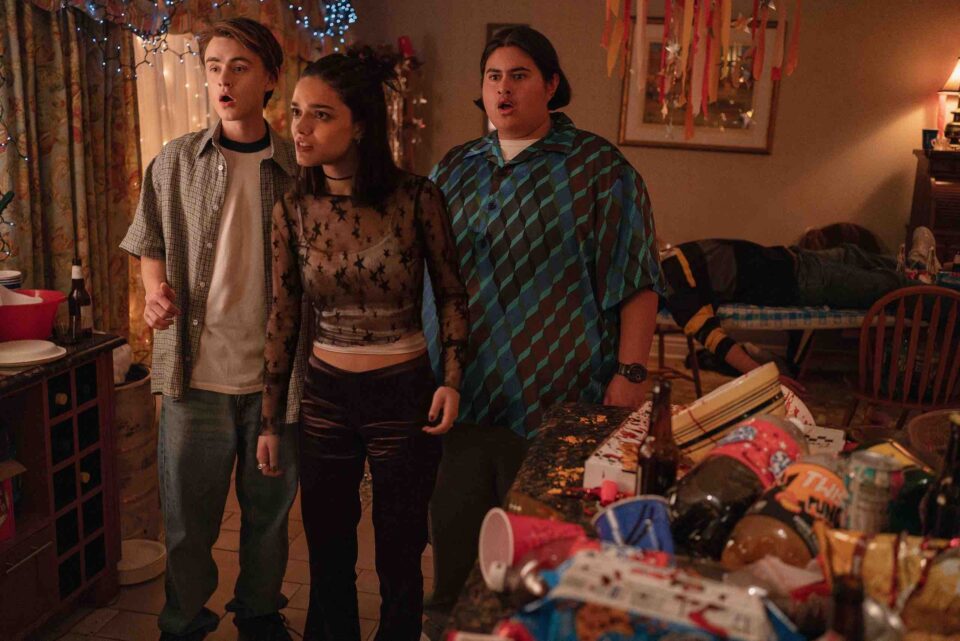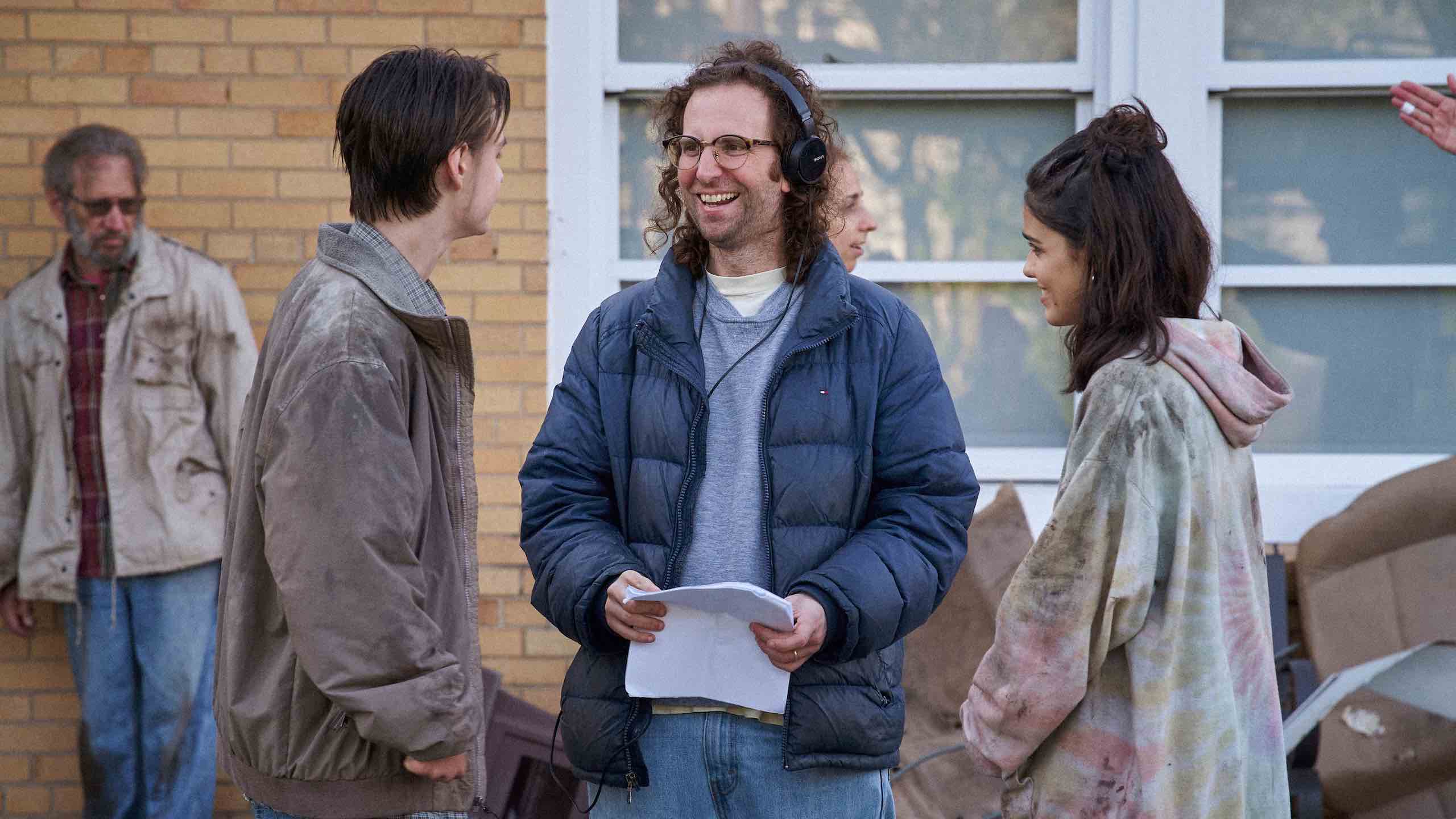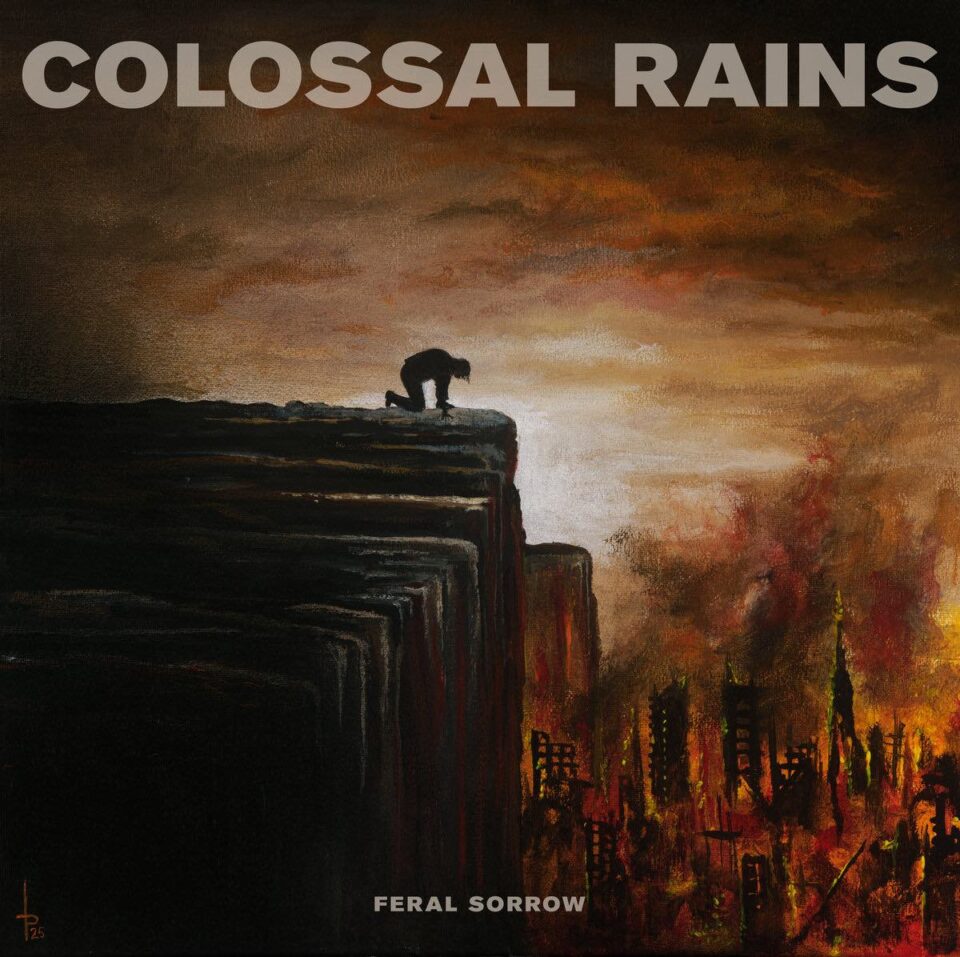Back in 1999, there was widespread panic when potential computer errors were expected to cause havoc as the year changed from 1999 to 2000. It was a brief cultural phenomenon that, as we now know, ended in total anticlimax—but what if it didn’t? That’s the premise of Saturday Night Live alumni Kyle Mooney’s directorial debut, Y2K.
Inspired by his high school years, Mooney brings the rich culture and nostalgia of 1999 to life on the big screen with a story that follows two high school juniors who crash a New Year’s Party, only to find themselves fighting for their lives when all of our greatest fears about Y2K become a reality. Feeding further into the current moment of late-’90s nostalgia, Mooney recruited Limp Bizkit’s Fred Durst (coming off a quietly stirring role in another A24 film, I Saw the TV Glow, earlier this year), who has a pivotal cameo in the movie in which he performs his memorable cover of George Michael’s “Faith.”
With the film in theaters now, we spoke with Mooney about bringing the anxiety of this era—as he remembers it—to comedic life.
What was it about the Y2K phenomenon that captivated you from a creative standpoint?
I co-wrote [the film] with my friend Evan [Winter], who I went to college with. We’re both children of the Y2K era—I was a freshman and he was in 8th grade. When Y2K happened, for me, it was such a major letdown. I kept it in the back of my head over the years as something that was really bizarre: This thing happened where nothing happened. On New Year’s Day in 2019, I pitched the small seed of an idea for a movie about teenagers going to a high school party where Y2K actually happened. Within a week, we had the building blocks of what the movie really is. Generally, we were just excited to show this era onscreen. This was our high school and middle school years. You don’t see it a ton, and it was a pretty specific time period. There was just an excitement of showing what our lives were like.
You also drew upon your own experiences for Brigsby Bear. Was it fun to draw upon your life experience again with Y2K?
I would argue this draws more from my life than Brigsby Bear. They both have pretty outlandish premises, but I grew up with a supportive family and I wasn’t kept underneath a bunker for a portion of my life. But I did love TV and movies, and that fandom and making stuff with your friends—that component is so true to me. With Y2K, we were trying to recreate those people and interactions we experienced in that era. Every character on screen, we knew a version of. Even though it was a collaboration with Evan, and he lived in a completely different place, we all had our versions of the rap-rock kid, or the kid who was really into underground hip-hop—which, incidentally, was me when I was growing up. That’s the easiest stuff to write, the stuff that you know.
“We were trying to recreate those people and interactions we experienced in that era. We all had our versions of the rap-rock kid, or the kid who was really into underground hip-hop—which, incidentally, was me.”
There are many scenes in this movie that feel like mini-sketches with memorable characters. How much did your sketch background help when making this movie?
I’ve performed versions of characters that could almost be cousins to the characters that you see on screen. In the writing process, that was something that was cool and made it easier, because I could try to inhabit these characters and archetypes.
What was it like to bring them all together for this movie?
Getting them all together, you don’t know how it’ll work. But we loved the idea of showcasing all these cliques. It might be a little exaggerated, but it was real to my high school experience. There were the bad boys that were wearing Korn shirts and putting magnifying glasses up to bugs. Then with the popular kids, you never knew what they were into, but you could tell they were cool.

Did you believe in Y2K at the time?
My mom definitely prepared for some sort of disaster. She bought a bunch of granola bars and jugs of water and stuff that, in theory, we could survive on. I was fascinated, and I thought that maybe the supermarket would be closed for a day and they would need to figure out how to get the cash registers working or whatever. I don’t remember being incredibly frightened, it was just another thing. I will say, the whole notion of it was something that I’ve carried with me for a while.
Y2K was one of the first big internet conspiracies, so the film is potentially even more pertinent now that there are new conspiracies every day.
It was interesting learning about Y2K because there was actually work done to make sure these computers could make the turnover into 2000. It was invisible work that I know nothing about, and the culture knows nothing about. But absolutely. It’s pretty wild that there was a thing that we all thought would be a big deal and then wasn’t. We’ve had moments recently where there have been things happening that we didn’t think would be a big deal and then become a massive global pandemic. It’s interesting to think about fear.
There’s a great scene in the movie with Limp Bizkit’s Fred Durst performing “Faith.” What was this like to direct?
He was in [the script] from moment one. When we were pitching, we thought it’d be really cool to have Fred Durst in there, and for him to do it was incredible. When we shot the scene of him performing in the gym for an audience of people who were about to be turned into robots, when we were giving directions to all of those people and standing next to Fred, it was definitely one of the most surreal [moments]. It was something that I could’ve never really dreamed of. It was such a specific thing to be doing, but it felt really special and it was probably the moment out of everything we did that took me most out-of-body, and I wanted to be able to hold onto that memory. FL







